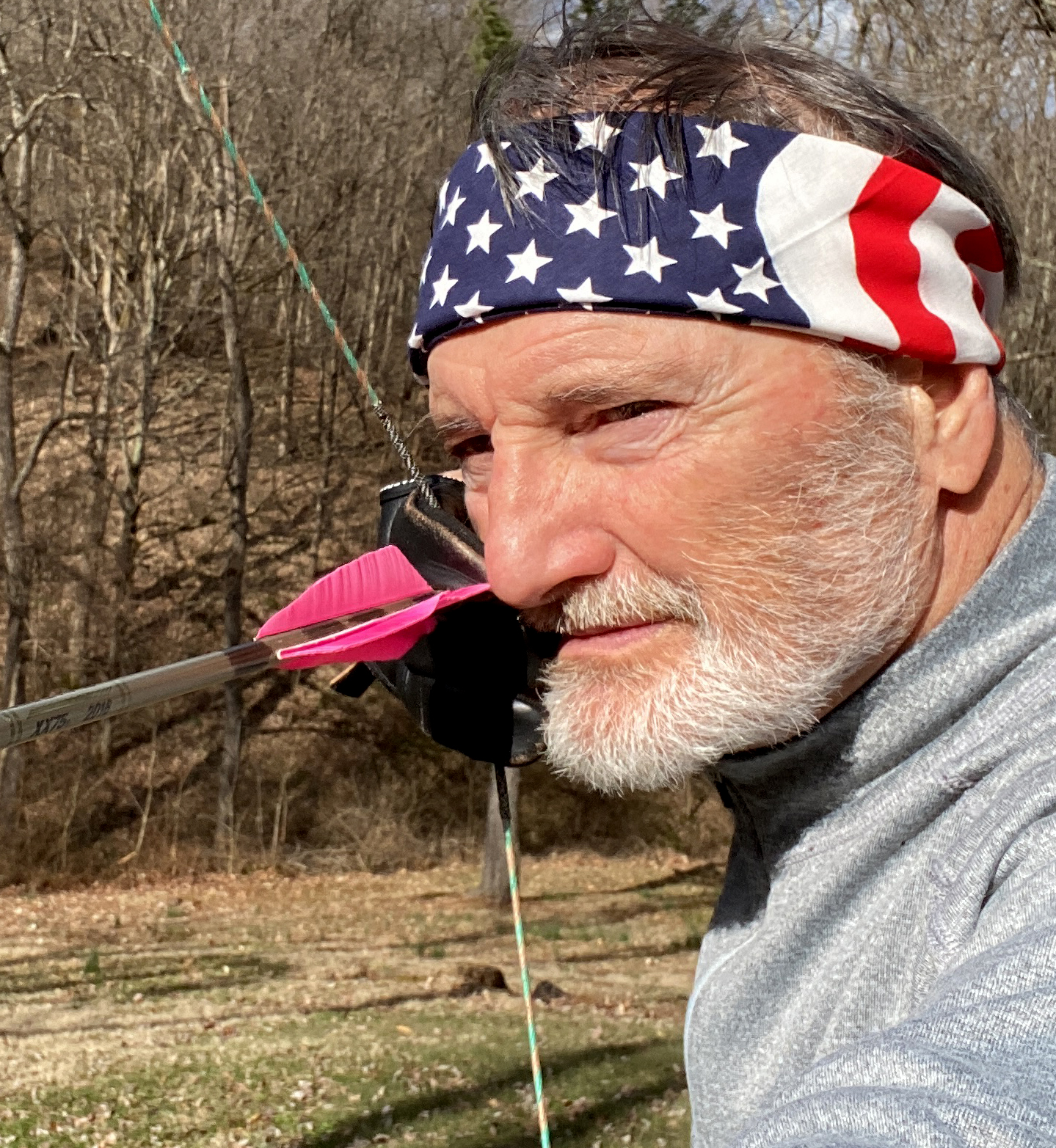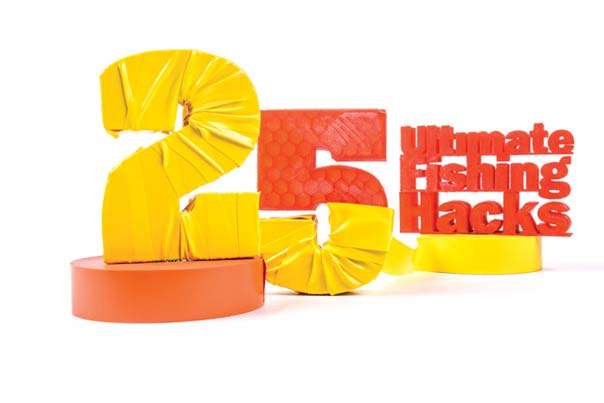
When you spend more than half the year living on the road, as the Bassmaster Elite Series pros do, finding ways to make life and fishing more efficient is a matter of survival. Here are 25 tips from the pros that will make your bass outings more productive.

Hack 1
All of Davy Hite’s Bass Pro Shops CarbonLite rods are the same color. This makes for confusion when he needs to fetch a rod with a particular action from his rod locker or, worse yet, from a slew of rods stuffed in a truck-top rod carrier. Hite simplifies this task by wrapping a band of colored tape around the butt of each rod: green for medium action, blue for medium-heavy and red for heavy. This lets him find the rod he needs at a glace.
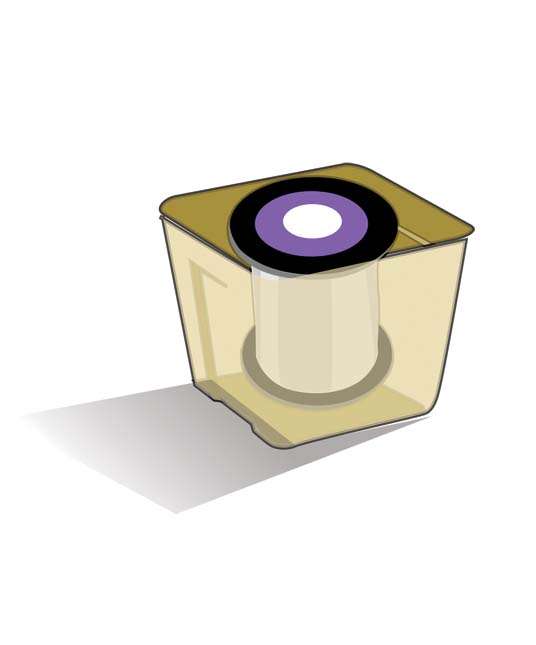
Hack 2
Hite brings large, bulk spools of line to tournaments so he can keep fresh line on his reels. He has found that the ice bucket in most motel rooms is ideal for holding a bulk spool when he winds on new line.

Hack 3
Seth Feider dons yellow sunglasses whenever he drives his boat during an early morning takeoff or under extremely overcast conditions.
“Regular sunglasses are too dark to see well under those conditions,” Feider says. “Yellow lenses brighten everything.”
Hack 4
Although Jacob Wheeler is one of the younger Elite Series pros, he doesn’t drive his bass boat on practice days with the hammer-down mentality that affects many youthful bass addicts.
“Young guys love speed,” Wheeler says. “But you can save 50 percent on fuel by running your boat at 4,000 rpm. Running slow also helps you find bass because you might notice something at 40 mph that you wouldn’t see at 70.”
Hack 5
Wheeler prefers a hand throttle to a foot throttle. It is similar to having cruise control on a long run. And, when Wheeler runs at crawl speed during practice, he often sits on one leg to get higher so he can better see potential bass hangouts.
Hack 6
When you have a dozen or more rods rigged, as Wheeler often does, it’s easy to forget what size line is on every reel. Wheeler avoids the confusion by writing the line size on a small piece of masking tape stuck to the side of the reel.
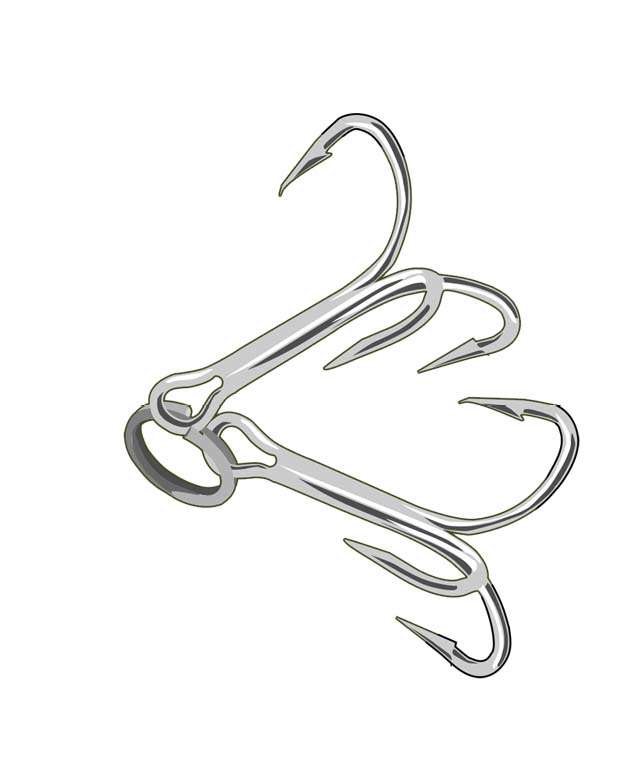
Hack 7
Because Michael Iaconelli frequently changes the treble hooks on his lures during tournament competition, he has learned to do so quickly.
“Barely start the hook you want to remove from the old bait onto the O-ring,” Iaconelli says. “Then insert the new hook onto the O-ring right behind it. As you push the new hook on, you push the old hook off at the same time.”
Hack 8
It’s easy to lose track of how many bass you have in your livewell when the bites come quickly. Brandon Palaniuk avoids such mishaps with a six-hole Cull Keeper bracket from Procise Outdoors attached to the underside of his livewell lid. It has holes for five tags in front and for a sixth tag off to the side.
“I tag every fish before I put it in the well,” Palaniuk says. “If it’s a big fish I know I won’t be culling, I put an empty tag in the livewell. When I get to my sixth tag, I know it’s time to cull. That also gives me an extra tag to use with my balance beam.”
Hack 9
Iaconelli always carries a Weego JS18 Professional Jump Starter in his bass boat. He says it has saved his bacon many times in tournaments. Because it weighs only 1.5 pounds and measures a scant 9 x 3.5 x 1.125 inches, it fits easily into any storage locker. Its short cables connect directly to the dead battery, eliminating tangles.

Hack 10
Dave Lefebre has a remote button for his Power-Poles mounted on the dash of his truck. He angles his trailer on the ramp so the boat drifts to the dock after it slides free. Then Lefebre hits the remote on his dash to drop the Power-Poles. The boat stays put while he parks his tow vehicle.
Hack 11
Backlashes are especially troublesome when you skip a jig with baitcasting tackle. Lefebre overcomes this dilemma by filling his baitcasting reel only half full. Less line allows him to skip jigs as light as 5/32 ounce with nary an overrun.

Hack 12
When Brandon Card is practicing for a tournament, he doesn’t like to waste time by stopping to take phone calls. Digging for a Bluetooth would be another time waster. Card overcomes this by pulling his Buff headwear to the top of his head and placing his phone inside, next to his ear.
“I call it a redneck Bluetooth,” Card quips. “It keeps the phone right by my ear so I can fish and talk to sponsors or my family at the same time.”
Hack 13
Matt Herren bought a truck camper several years ago and says it saved his bass fishing career.
“I don’t sleep well in a strange bed,” Herren says. “When I stayed at motels, I was a walking zombie.”
The camper allows Herren to sleep soundly in a familiar bed every night while he’s on tour. He also finds that camping is safer, less costly and more convenient than staying at motels.
“When I lie down at night, I don’t worry about someone stealing my stuff,” Herren says.
Hack 14
“All of us carry a hundred different kinds of soft plastics to the Elite tournaments,” says Brandon Lester. “The best way to keep them organized is to leave them in their original packs and put the same type of lures in zip-lock gallon bags.”
With a marking pen, Lester writes on the gallon bag what its contents are: lizards, finesse worms, craws and so on. This lets him quickly find and move whatever plastic baits he needs back-and-forth between his boat and the storage containers in his truck.
Hack 15
Lester was having problems with line twist when he respooled his spinning reels with fluorocarbon line. He discovered that line twist is eliminated when he submerges the spool of line in water, such as in a motel sink, while respooling.
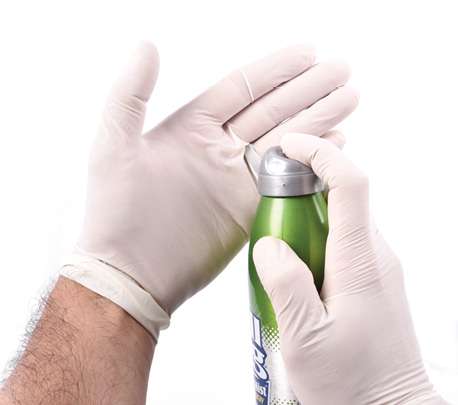
Hack 16
Card says most of the Elite pros are paranoid about getting sunscreen on their baits. He prevents this by wearing thin latex gloves when he applies sunscreen to his face and other exposed skin. After removing the latex gloves, he dons Buff gloves to shield his hands from the sun.
Hack 17
When Ott DeFoe wants to change a worn-out frog skirt or switch to a different color skirt while fishing, he robs a fresh skirt from one of his other frogs. Pulling the skirts out is simple, but inserting the desired skirt is tricky.
DeFoe does this by threading a loop of line through both legs of the frog with a long, saltwater rigging needle sold through Bass Pro Shops.
Then he inserts the strands on one end of the skirt through one of the loops that protrude from each of the frog’s leg holes.
Pulling on the other end of the loop pulls the strands through both leg openings.
Once the end of the skirt pops through, DeFoe pulls the rest of the skirt into place with his fingers.

Hack 18
A common practice among the pros is to slip a tiny rubber bobber stop on the line to hold a heavy punch sinker against a Texas rigged bait. The problem with this, Card has found, is that the weight tends to push the head of the bait down so it doesn’t hang straight, especially with a snelled hook. Card prevents this by placing a bobber stop below the weight as well as above it. He also uses a bobber stop under a Carolina rig’s sinker to prevent it from damaging the knot to the swivel.

Hack 19
John Crews is fanatical about checking the air pressure in his trailer tires. Proper air pressure reduces the tow vehicle’s fuel consumption, helps the tires wear evenly and reduces the chance of tire failure.
“When I’m driving, I can feel the difference when my trailer tires have the right air pressure,” Crews says.
Hack 20
While practicing for a tournament, Fletcher Shryock often wears Beats by Dre headphones plugged into his smartphone. He tunes in to a variety of Pandora stations that broadcast upbeat music, which keeps him in a positive frame of mind. He can also take phone calls through the headphones.
“I can listen to music and take phone calls and never miss a cast,” Shryock says.

Hack 21
Before any tournament, Brent Chapman religiously adds an extra split ring to the trailing treble hook on any hard bait he intends to use.
“That extra split ring gives the hook so much more rotation that your odds of losing bass are much less,” Chapman says.
It is important not to alter the bait’s balance when you do this. If the original split ring is large, Chapman replaces it with two smaller Eagle Claw split rings, which he says are plenty strong enough, despite being smaller.
Should the additional split ring cause the hooks to tangle, Chapman swaps to a short-shank treble.

Hack 22
After suffering through an unusual spate of flat trailer tires, Mark Menendez began carrying four items in his truck to combat the problem. One is a can of Fix-a-Flat. Although he doesn’t rely on it to permanently fix a flat tire, it will keep him keep rolling long enough to get where he can change the tire safely. Item two is a portable air compressor that plugs into his truck’s cigarette lighter. If the tire is too low to drive on, a shot of Fix-a-Flat followed by a stint on the compressor will get him rolling again.
Because the lug nuts on Menendez’s trailer tires are different than the ones on his truck, he carries a four-prong tire wrench that fits the lugs on both. The final item is the length of a 4- x 6-inch board that is tapered on both ends. Should one of the tires on his tandem-axle trailer go flat, he can pull the good tire on that side of the trailer up onto the board, which eliminates the need for a jack.
Hack 23
Ish Monroe used to stuff his boat and truck with so much tackle that he couldn’t find what he needed quickly while fishing or getting tackle ready in the evening.
“I cut the tackle I bring to a tournament by a third,” Monroe says. “Now I can get my hands on the right rod or lure quickly. Take my topwater rod, for example. I always have it ready to go in my rod locker, even when it isn’t the thing to be throwing. If bass start schooling in front of me, I can pull my topwater rod out of the locker immediately and make a cast to them. I couldn’t do that before I downsized my tackle.”
Hack 24
Russ Lane’s line sponsor provides him with all the fishing line he needs. Even so, Lane hates to waste good line.
“When the line is worn out, I go outside and tie the end of it to something,” Lane says. “Then I walk away until the line peels off to the knot for my backing. I cut the line, tie the backing to the used end of the line and wind it on backward. That way I can use the same line twice as long.”
Hack 25
Most of the Elite pros spend half their lives living in motels. Keeping track of the room key was once a problem for Gerald Swindle. He grew tired of pestering hotel clerks for new keys and found a way to avoid this aggravation.
“I don’t put the room key in a pocket or in my boat,” Swindle says. “I always leave it in my truck. Problem solved.”

